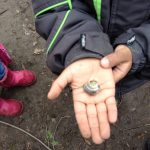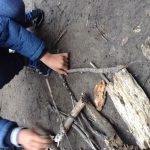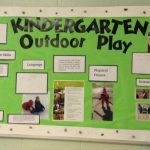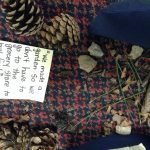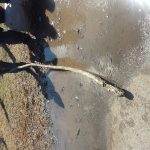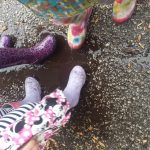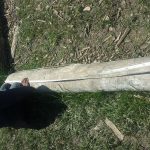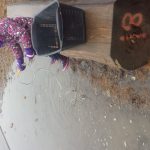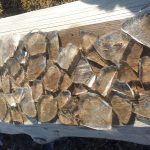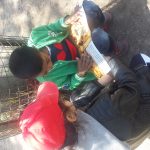Our goal was to create a vibrant outdoor learning space by providing our kindergarten students with opportunities to interact with nature, engage in hands-on learning and to develop ecological literacy.
Team Members
Suzanne Mocherniak
Toronto District School Board
Janet Prosper
Toronto District School Board
Professional Learning Goals
- Developed leadership in the area of outdoor learning and promoting ecological literacy
- Became more familiar with equitable practices and how to provide differentiated learning in an outdoor space
- Learned how to provide experiences what were intentionally planned and related to curriculum expectations, but would also allow for inquiry and following the interests of the students
- Engaged in professional collaborative inquiry around outdoor teaching and learning
Activities and Resources
In order to help us with how to better enhance our space, we met with Michelle Blackie and David Hawker-Budlovsky from Ecoschools. They came and visited our space and gave us invaluable insight and suggestions. We purchased professional resources for our school library that supported outdoor education for young children. We found a number of online resources which promoted environmental education. We gathered different items for loose parts in the outdoor classroom by connecting with parents and members of the local school community. We garnered the support of our school caretaker and he helped us by organizing the delivery of soil and wood chips. We purchased a few read-aloud books and created a book list of topics about playing and learning about, for and in environment. We also purchased items that promote hands-on learning experiences in our outdoor space such as stock tanks for planting, a rain barrel, a class set of rain boots, garden tools and storage bins.
Unexpected Challenges
The biggest challenge we had was the high cost of materials for outdoor learning spaces. We did not have enough money for the grounds work that needed to be done for full implementation that we planned. Large items such as storage sheds for outdoor loose parts and other items were especially difficult to acquire because of the cost.
We also agreed that more time for professional sharing would have been beneficial. As part of the TLC project, we were given time to collaborate, but our colleagues at our school were not, and that took away from all that we wanted to share. We often found ourselves sharing information with our colleagues on an adhoc basis. It was generally agreed that everyone wanted to have more time to learn together.
Enhancing Student Learning and Development
The students developed a deeper understanding of the environment and ecological literacy. For example during play, some students were building a solar-powered house using found materials which led into a deeper discussion on sources of energy that help the environment. Also, the children were able to explore the space at the back of the schoolyard to identify good things and bad things (treasures and troubles) in the space. We noticed that the students demonstrated focused attention and cooperation skills as they participated in activities such as helping to move the dirt from a pile into the stock tanks for planting. Carrying and moving large loose parts challenged the students physically and, after working for some time shovelling dirt, one student commented, “This was good hard work!” Also, the children demonstrated creativity and co-operative skills such as collecting pieces of ice to create a mosaic, as well as using other found materials to construct and build. We also noticed that after playing and learning outside, the students returned indoors more relaxed and with improved self regulation skills.
Sharing
We were able to accomplish a number of sharing opportunities with our colleagues.
We provided:
- PLCs
- a “Lunch and Learn” on Outdoor Learning for Kindergarten
- Shared Folder on school Google drive
- resources in common area of library
- bulletin board in front lobby of school with photos of kindergarten outdoor learning and writing by the students
- grand opening/dedication of outdoor space shared with whole school in conjunction with Earth Day celebration April 21, 2017
In the future, we are planning to:
- “Lunch and Learn” at other schools in our learning centre
- attend the ETFO conference
Project Evaluation
Our project was a huge success. This is measured by high use of the space by other teachers in our FDK team. Having the loose parts readily available is very inviting and teachers are now regularly using the space for small group lessons, as well as large group activities. We noticed that our colleagues are using the bins of loose parts that we created and are following the interests of the children and intentionally leading them to find answers to their questions about the environment. Comments have been shared amongst the staff that learning outdoors has provided benefits to some children struggling with self-regulation and social skills. We have noticed that students are blossoming and flourishing when outdoors in guided activities. Teachers are consulting the hard copy resources provided in the library such as Loose Parts and they are also using electronic resources provided such as Ready, Set, Learn. They are learning alongside the students through high-quality experiences. We have noticed that teachers are beginning to express more of an interest in teaching and learning outdoors and our school has chosen to participate in “Outdoor Classroom Day” on Thursday, May 18 and Friday, May 19, 2017. Some colleagues have asked to further investigate resources such as Loose Parts in an informal Professional Learning Circle or Professional Book Club in the upcoming school year.
If we had to do something differently, we would:
- consult the larger community for more support and seek out who could provide labour and materials to further develop the space
- be more intentional in promoting outdoor education and the benefits of engaging with nature through community consultations, etc.
Resources Used
1. Natural Curiosity: Building Children’s Understanding of the World Through Environmental Inquiry/A Resource for Teachers. Lorraine Chiarotto, 2011. www.naturalcuriosity.ca
This resource offers elementary teachers many examples of how to put environmental inquiry into practice. It will help teachers to make learning about the natural environment more interesting and relevant for their students. It provides real-life, practical examples from TDSB schools and supporting research from OISE.
2. Lens on Outdoor Learning. Wendy Banning and Ginny Sullivan, 2011.
This resource examines how the role of the educator, child and the environment complement one another when children explore outdoors. This book also provides many examples of how rich the learning becomes when students pursue their own questions and interests outdoors.
3. Loose Parts. Lisa Daly and Miriam Beloglovsky, 2014.
This resource highlights loose parts that spark children’s creativity and innovation. Loose parts are natural or synthetic found, bought or upcycled materials that children can move, manipulate, control and change within their play.
4. Intro to Nature: A Guide to Teaching in Nearby Nature
This resource is a must for educators looking for a guide to instruct and support using nature as a regular component of teaching. You’ll find a wealth of activities that will engage students and promote learning in the outdoors while having fun.
“children need opportunities to develop an affection for and relationship with nature if they are to develop the knowledge and sense of responsibility to care for nature”
“there is something innate about experiences in nature that are beneficial to children‘s social and cognitive development”
“children diagnosed with Attention Deficit/Hyperactivity Disorder experienced a significant improvement in their ability to concentrate after they had spent time outdoors in (non-paved) green spaces. Yet they also noted that it is difficult to separate the impact of the natural environment itself from the impact of the hands-on learning that often happens there”
“open-ended outdoor play is an ideal setting for the development of democratic attitudes and a sense of empathy towards each other that form a foundation for a socially critical perspective”
https://tspace.library.utoronto.ca/bitstream/1807/27368/1/Weigand_Rebecca_201103_MA_thesis.pdf
Resources Created
These resources will open in your browser in a new tab, or be downloaded to your computer.


